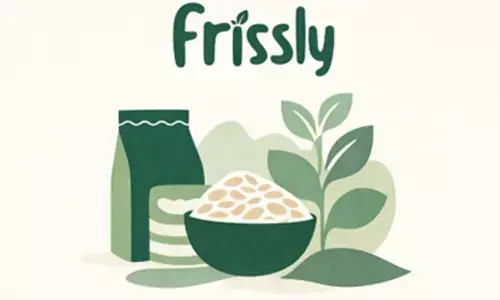Optimise nutrition as you age

Dr Ganesh Kadhe shares what women should feed their bodies so that they can enjoy good health throughout
Let's pause to understand what healthy eating looks like for a woman. What should we be feeding our bodies so that we can enjoy good health throughout the changing stages of our lives? Whether you're a student attending online classes or a corporate honcho working from home these days; a homemaker who never gets a moment's rest or maybe you're none of the above but as a woman, you need to know what nutrition is right for you and more importantly, when.
Starting from the stage of a teenager, what you eat will define who you are in the years to come as nutrient needs are higher now than at any other time in your lifecycle. "As teenage years are a time of rapid growth and development, eating a well-balanced diet is key, as healthy food is essential for proper hormonal balance. One must stay fit by consuming good fat from fish, avocado, nuts, olive oil etc. The onset of menstruation at this stage often causes low haemoglobin so load up on food rich in iron, protein and avoid junk food containing refined sugar, saturated and trans-fat." said Dr Ganesh Kadhe, Associate Director, Nutrition Medical and Scientific Affairs, Abbott
He added, "If you're under 30, it's a good time to start increasing your calcium intake. In case the pandemic continues to play a spoilsport of how much sunshine vitamin you can absorb, add vitamin D into your diet to enable the absorption of calcium. If you're pregnant or breastfeeding then lean proteins, iron, and vitamin C (to absorb the iron) are all must-haves for you. In case you are planning a pregnancy, intake of supplements comprising of vitamin D, B12, iron, calcium and folic acid are essential. A well-balanced diet for all women this age should include some meat and dairy, seafood, green leafy veggies, pulses and grains, dry fruits, and citrus-rich fruit."
Optimise nutrition as you age
Make the transition into menopause a smooth one by limiting foods high in salt, preservatives, and saturated fats. "Women in their 40s and 50s must say hello to more calcium and iron, food rich in antioxidants like berries, cocoa, green tea and more fibrous food like whole grains, veggies, and fruit. In addition to vitamins D and C, another one that cannot be ignored as we age is B12 which is responsible for neurological function and is usually deficient in vegetarians so consciously supplement your diet with vitamin b12 fortified food if you don't get it naturally. As the onset of metabolic disorders and vitamin deficiencies are seen often in this age group, following a low glycaemic, low-fat high protein diet topped with regular exercise is essential." says Dr Ganesh.
"Age may only be a number but if you want to stay fit and active even over 60 then the number of nutrients in your food needs to increase in proportion. As a woman in her senior years, your diet should already include all that is recommended above. So that means foods rich in calcium, iron, protein get a big yes and processed foods, saturated fats and excess salt get a big no. The other red flags at this age are spicy foods that can trigger acidity issues, too many sweets that can lead to sugar imbalance and eventually diabetes. One should be conscious that avoidance of dairy due to lactose intolerance is not a solution and they should rather consume dairy products rich in calcium and proteins."
No matter what age you are, drink plenty of water to keep your body well hydrated, add a nutritional drink to your diet for a healthy balance of nutrients, get enough sleep so that you feel fresh and rejuvenated; stay active with age-appropriate exercise and pay equal importance to your mental wellbeing. A lifestyle that combines all of this with a healthy, well-balanced diet will ensure that you relish womanhood at any stage in your life.















